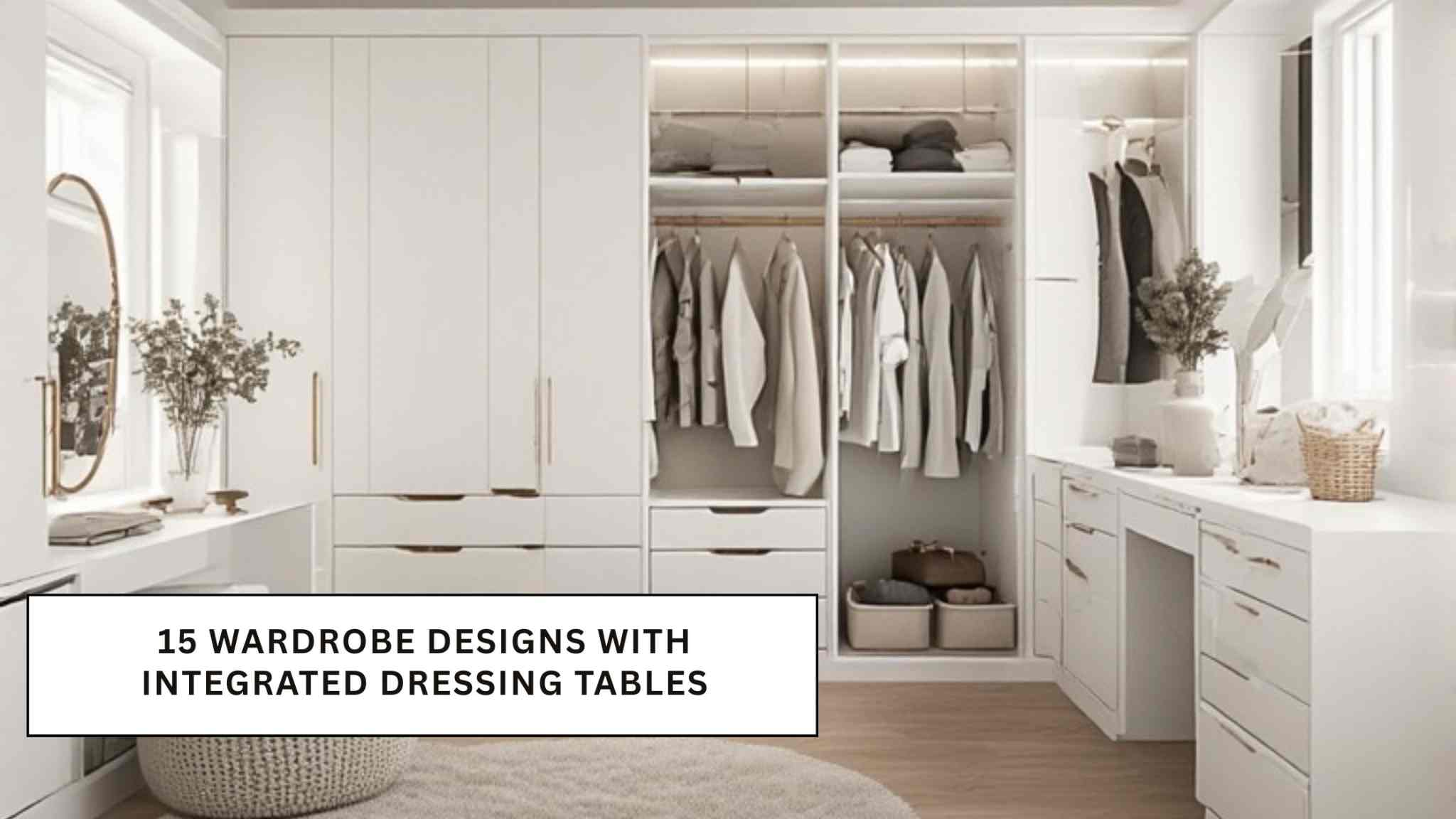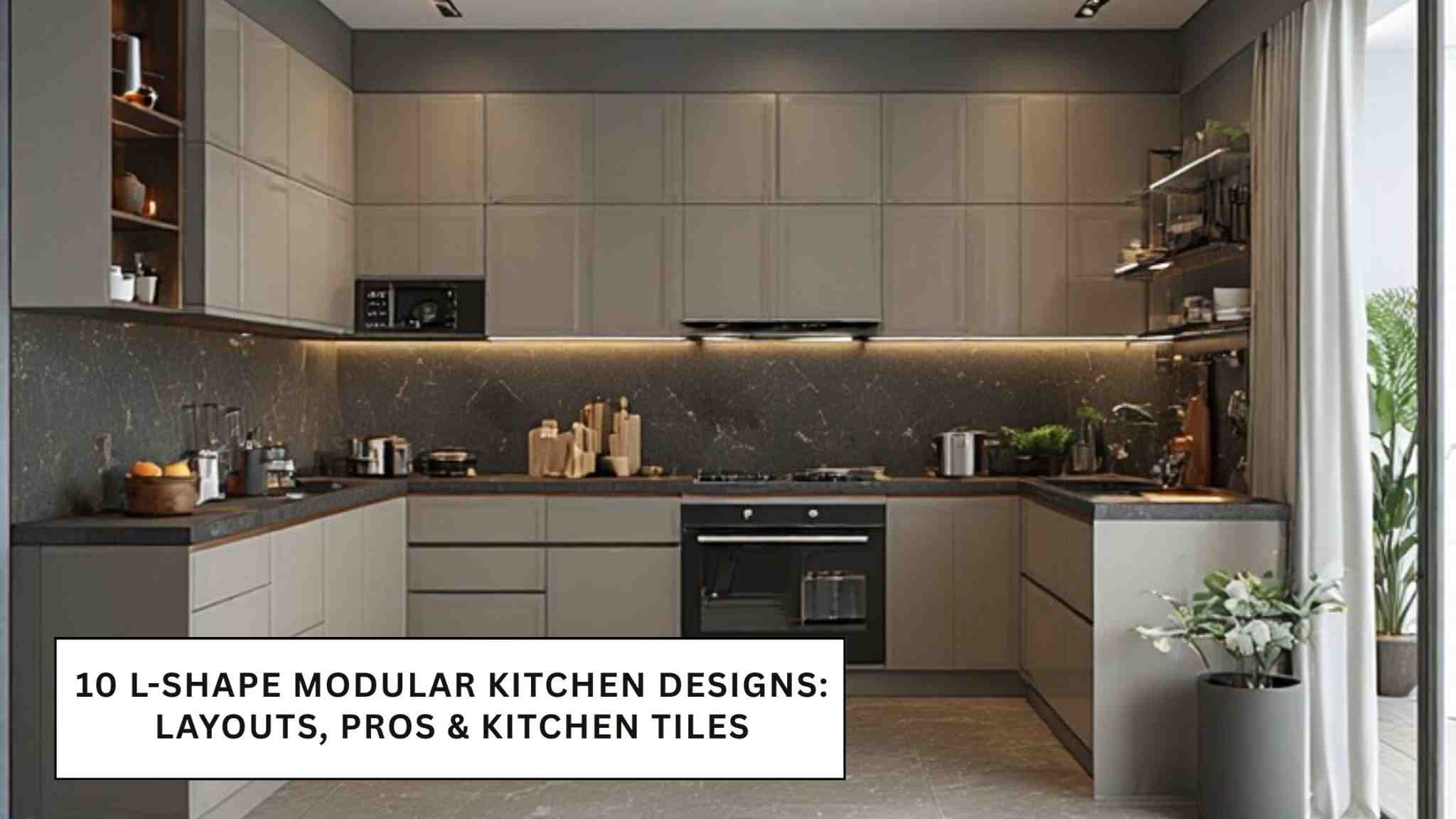7 Different Types of Urinals for Indian Spaces
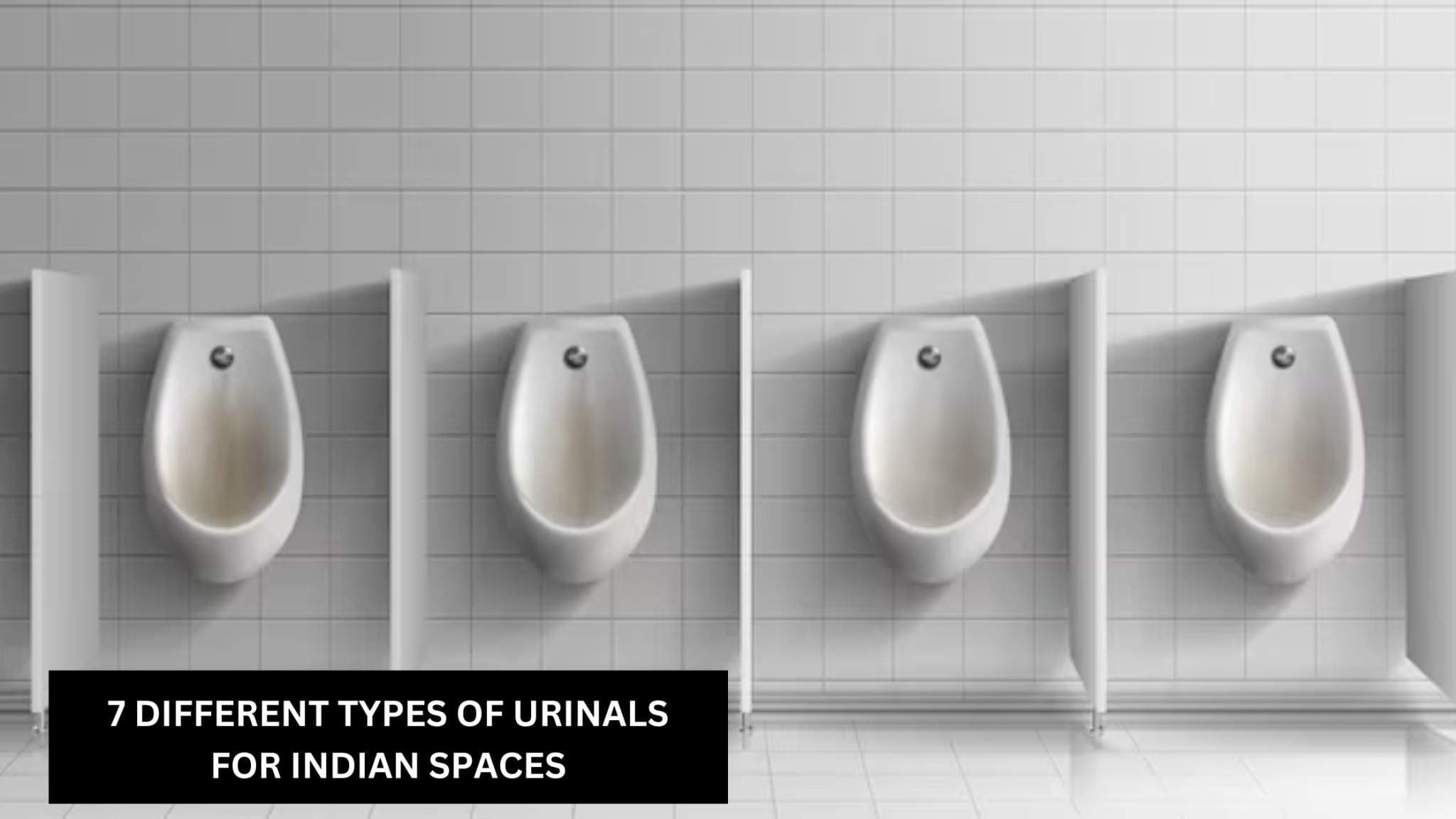
A urinal may seem like a simple fixture, but the right design can completely change how a washroom looks and functions. From space-saving wall-mounted styles to eco-friendly waterless models, each type serves a specific purpose. Picking the right one isn’t just about looks — it’s also about hygiene, ease of cleaning, and how well it suits the space. Simpolo Tiles & Bathware offers a wide range of urinals that combine durability and style, making them a wise choice for both residential and commercial spaces.
What is a Urinal?
A urinal is a specialized sanitary fixture designed primarily for the efficient disposal of liquid waste. Traditionally associated with male restrooms, ongoing innovations in sanitation have led to the development of different urinals for diverse demographics, including female-specific models.
Unlike a standard toilet, a type of urinal is compact, utilizes significantly less water, and optimizes traffic flow in high-occupancy settings. They make washrooms easier to maintain and more hygienic while simultaneously saving valuable floor space. In India, the application of various urinal types is expanding rapidly, moving from schools and malls into modern homes that prioritize efficient water management.
Types of Urinals and Their Uses
Urinals today are available in multiple designs and mechanisms, each created to meet the specific needs of different spaces. From compact options for offices to durable choices for high-traffic hubs, understanding the types of urinals and their uses helps in selecting the correct fixture for both functionality and design. What are the different types of urinals available for modern projects? Let's explore the primary categories:
1. Wall-Mounted Urinals
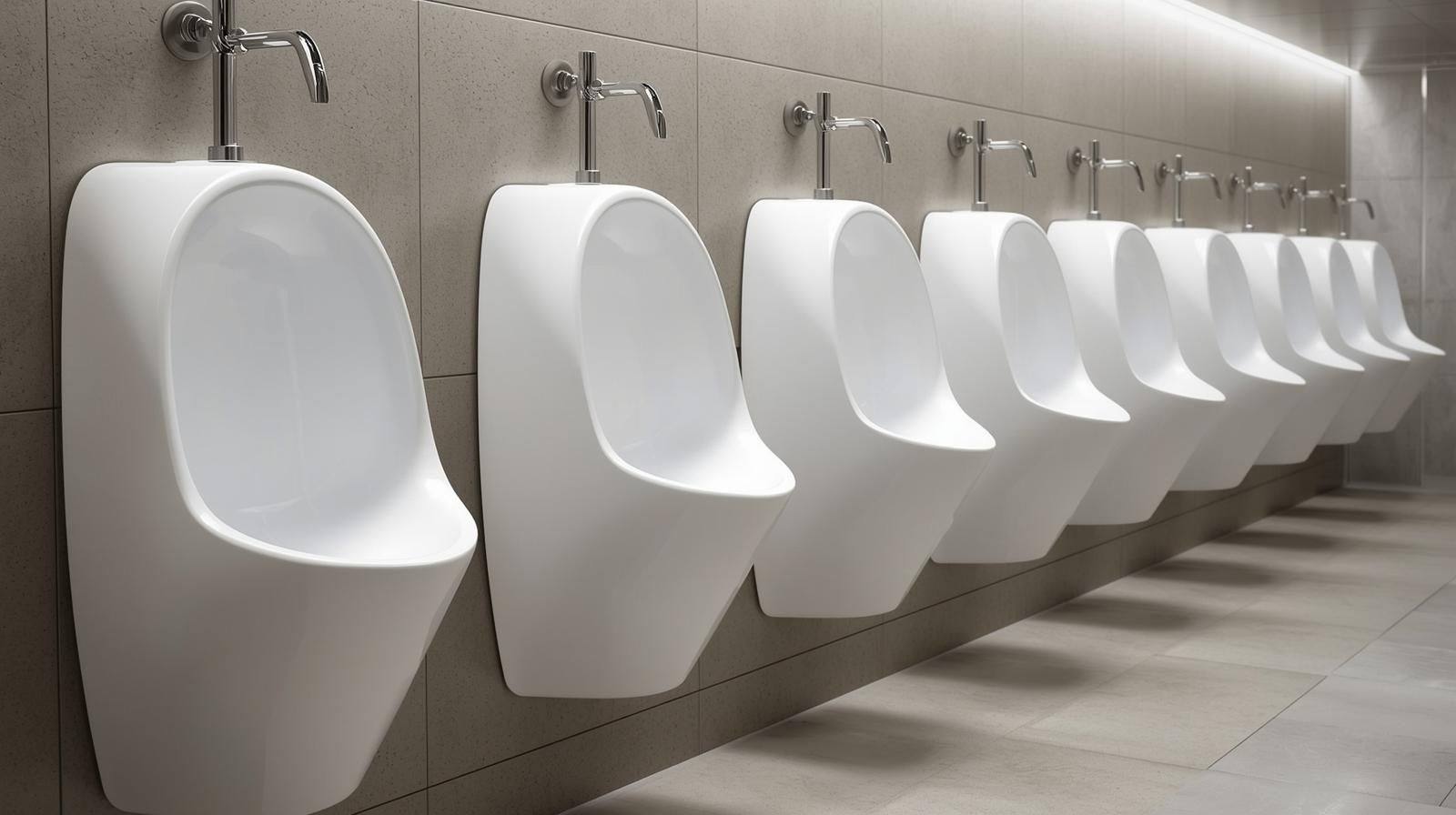
Wall-mounted urinals remain the most practical option for medium-traffic washrooms, freeing up floor space and making cleaning more efficient. Their installation at a convenient height makes them versatile for offices, schools, and shopping complexes. Among available choices, Simpolo Tiles & Bathware offers the Sfera Ceramic Wall Mount Urinal, designed with durable ceramic and a compact, modern profile. It is well-suited for spaces that need a balance of resilience, hygiene, and contemporary style.
Pros: Space-efficient, simple installation, cost-effective.
Cons: Requires a firm supporting wall surface.
Best for: Offices, schools, shopping complexes, and other mid-traffic restrooms.
Related Post : 10 Urinal Fittings & Urinal Pipe Fittings for Modern Restrooms
2. Partition or Privacy-Panel Urinals
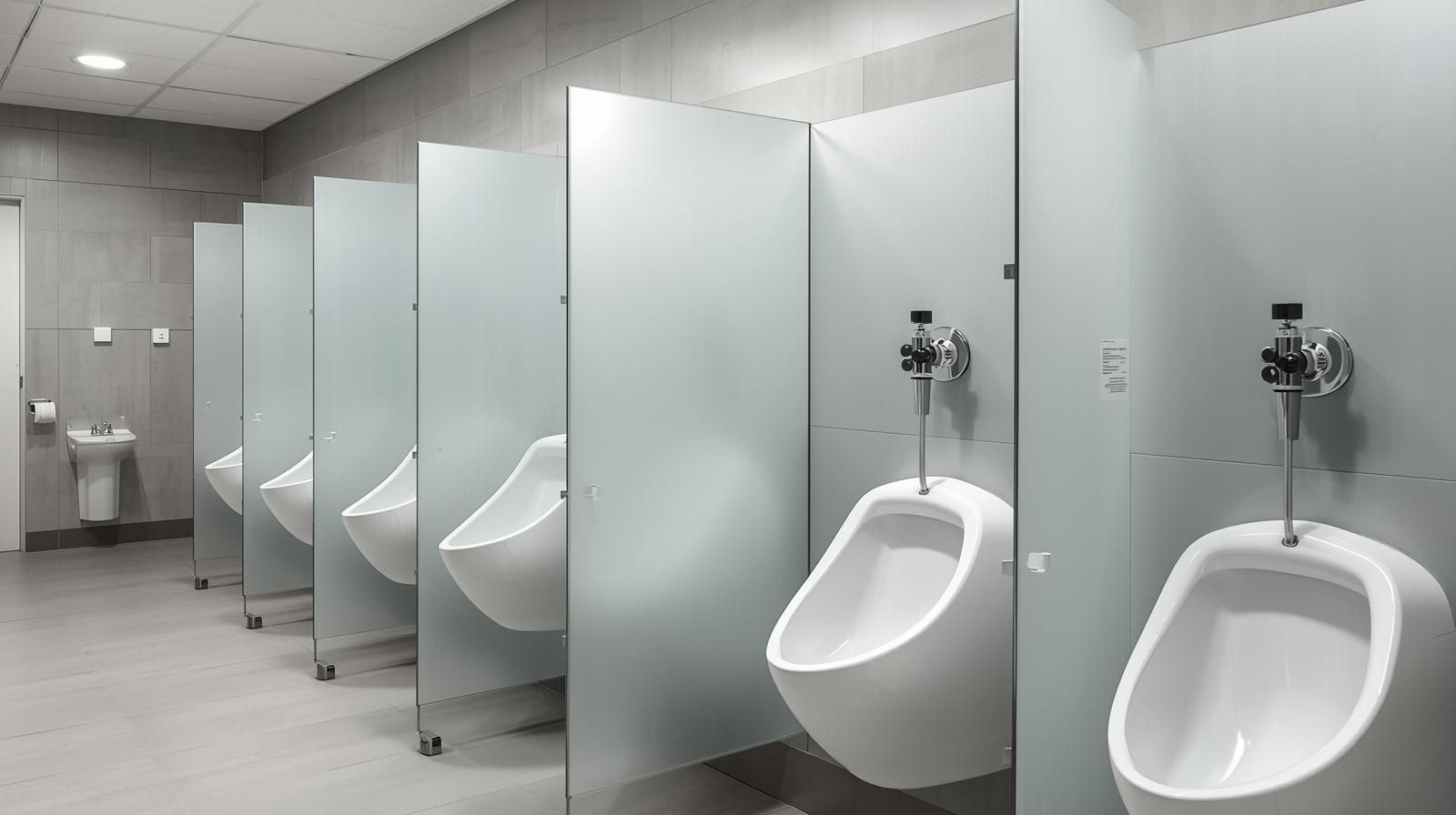
These are not separate urinal models but standard fixtures paired with partitions for added discretion. Privacy panels help reduce discomfort in public settings and make shared washrooms more user-friendly. While they require slightly more space, they are ideal in offices and commercial buildings where comfort is as important as function.
Pros: Improves comfort in public settings, reduces awkwardness.
Cons: Slightly increases space requirements.
Best for: Large commercial washrooms, schools, and office complexes.
3. Floor-Mounted Urinals
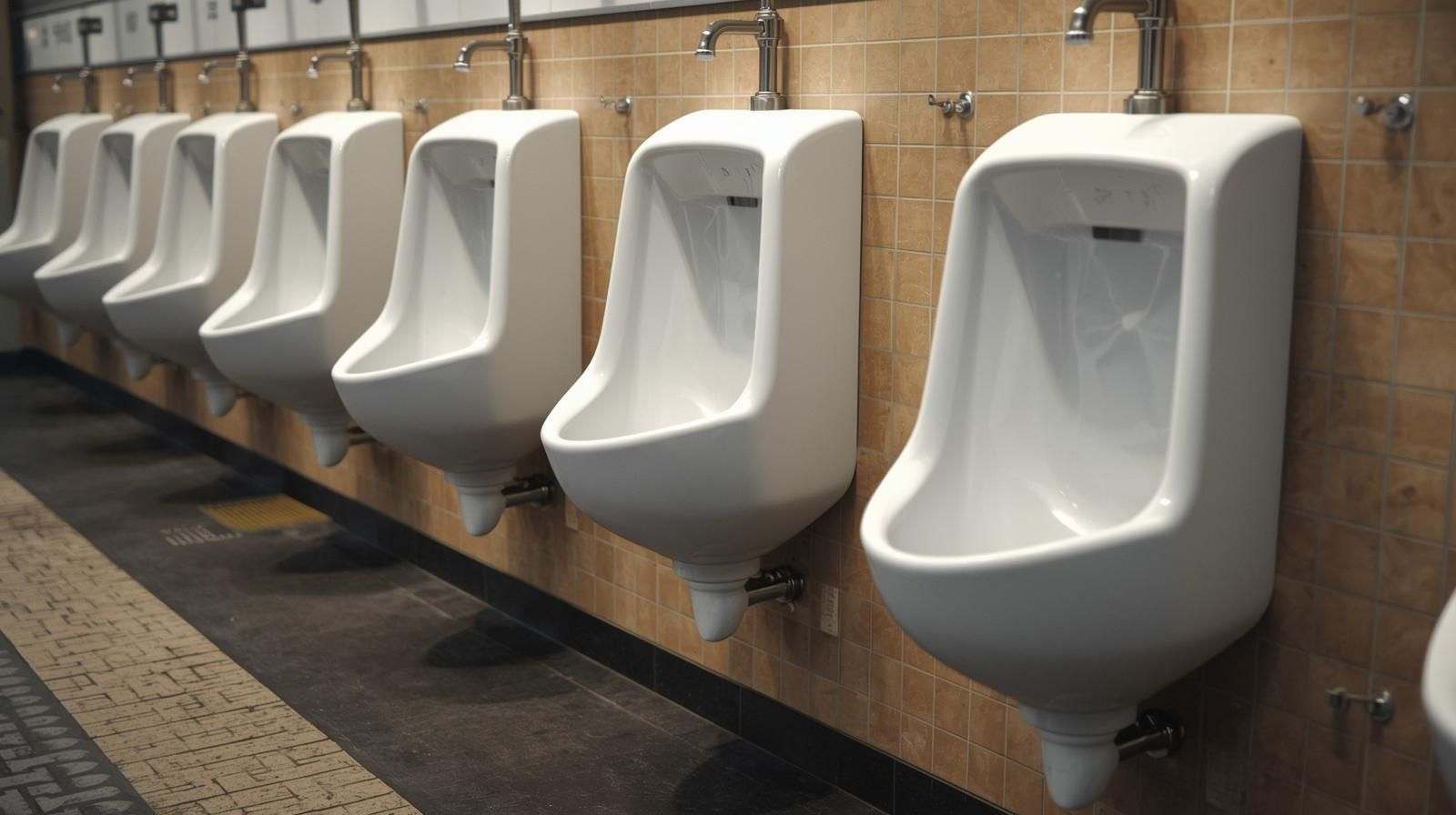
Floor-mounted urinals rest directly on the ground, making them sturdier and more robust than wall-mounted units. They are specifically designed for heavy use and are common in transport hubs and busy eateries. Although they occupy more floor space and are more challenging to clean beneath, their durability makes them the preferred choice for high-traffic environments.
Pros: Strong and durable, suitable for very high-traffic facilities.
Cons: Occupies more floor space, harder to clean under.
Best for: Airports, railway stations, busy restaurants.
4. Sensor-Operated Urinals
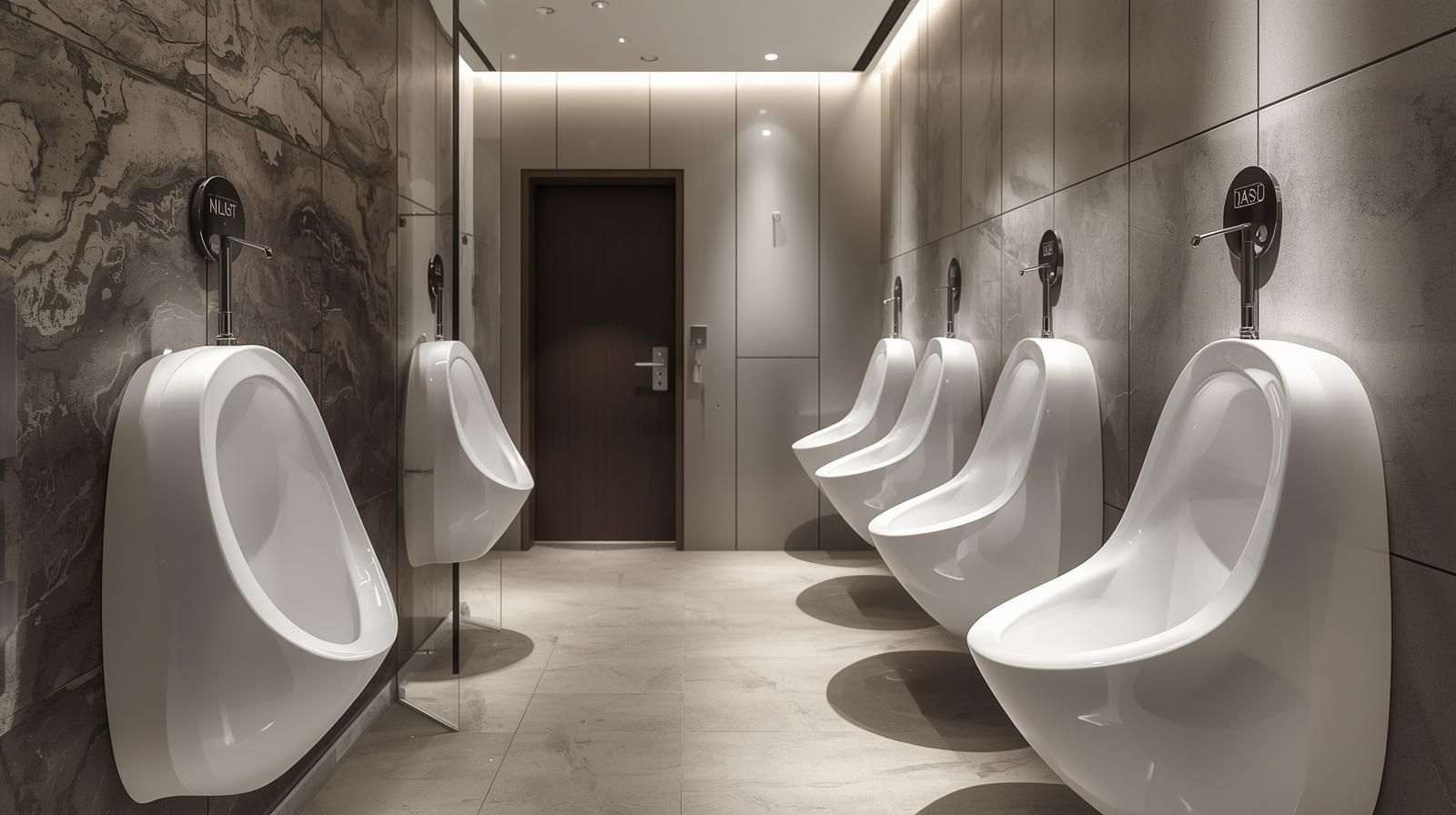
Among the different types of urinals, sensor-operated models are prized for their touch-free design, which significantly reduces the transmission of surface-borne pathogens. These motion-activated systems are now considered essential in premium spaces where user convenience matters. Simpolo Tiles & Bathware combines refined styling with innovation in models like the Sfera Ceramic Sensor Urinal, providing hygienic operation and water-saving efficiency for offices, malls, and luxury facilities.
Related Post :Choosing the Right Urinal Size for Your Home
Pros: Touch-free use, water-efficient, modern look.
Cons: Higher installation and maintenance costs.
Best for: Premium offices, malls, and luxury commercial spaces.
5. Waterless Urinals
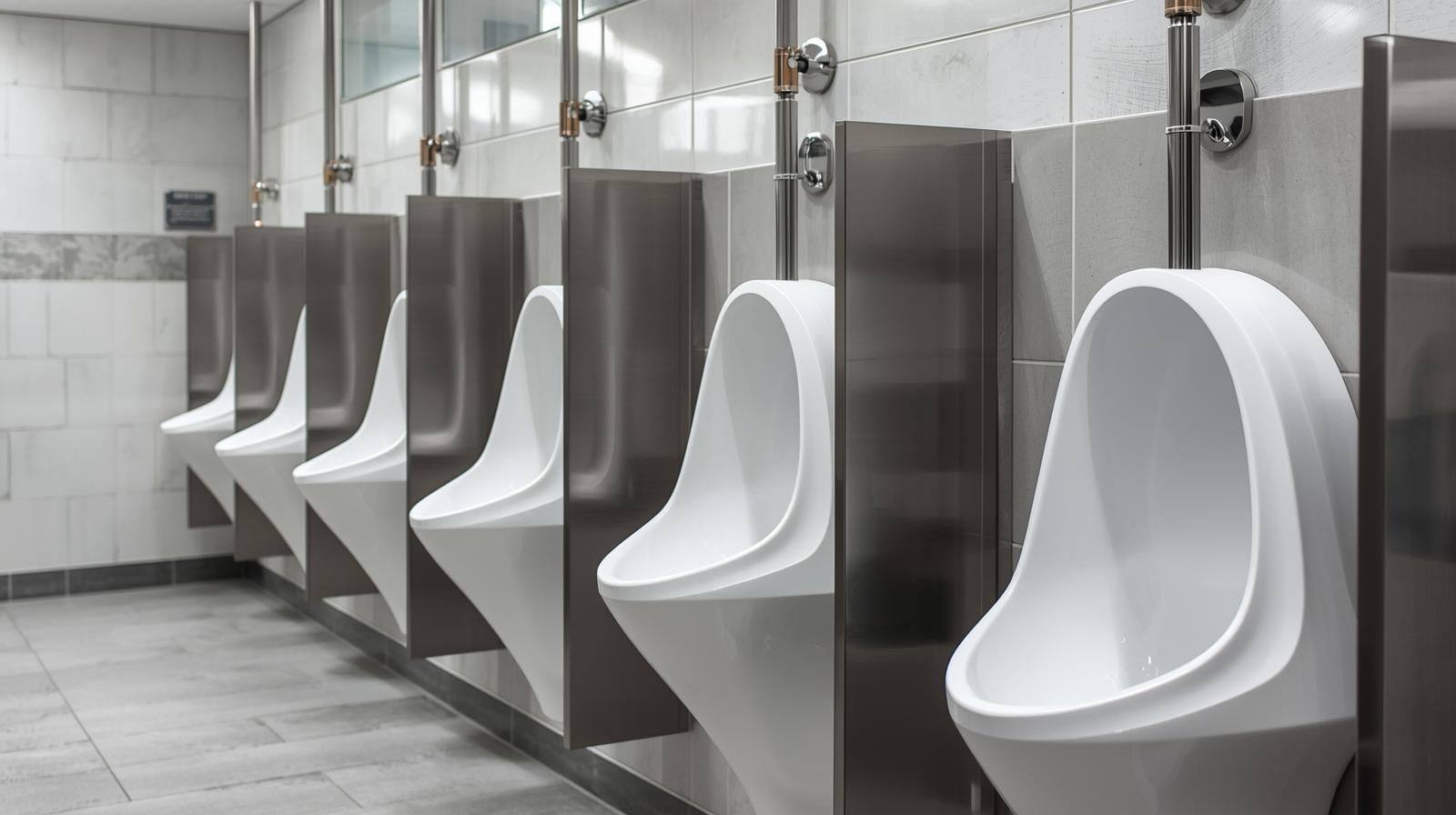
Waterless urinals use special cartridges or membranes that block odours while allowing liquid to pass through. They save thousands of litres of water annually but require consistent upkeep to prevent blockages and maintain hygiene. Although their initial cost is higher, they remain an eco-conscious option for buildings with sustainability targets.
Pros: Saves water, is eco-friendly, and reduces utility bills.
Cons: Requires diligent maintenance and a higher upfront investment.
Best for: Eco-conscious buildings, offices with sustainability goals, green-certified projects.
6. Corner Urinals
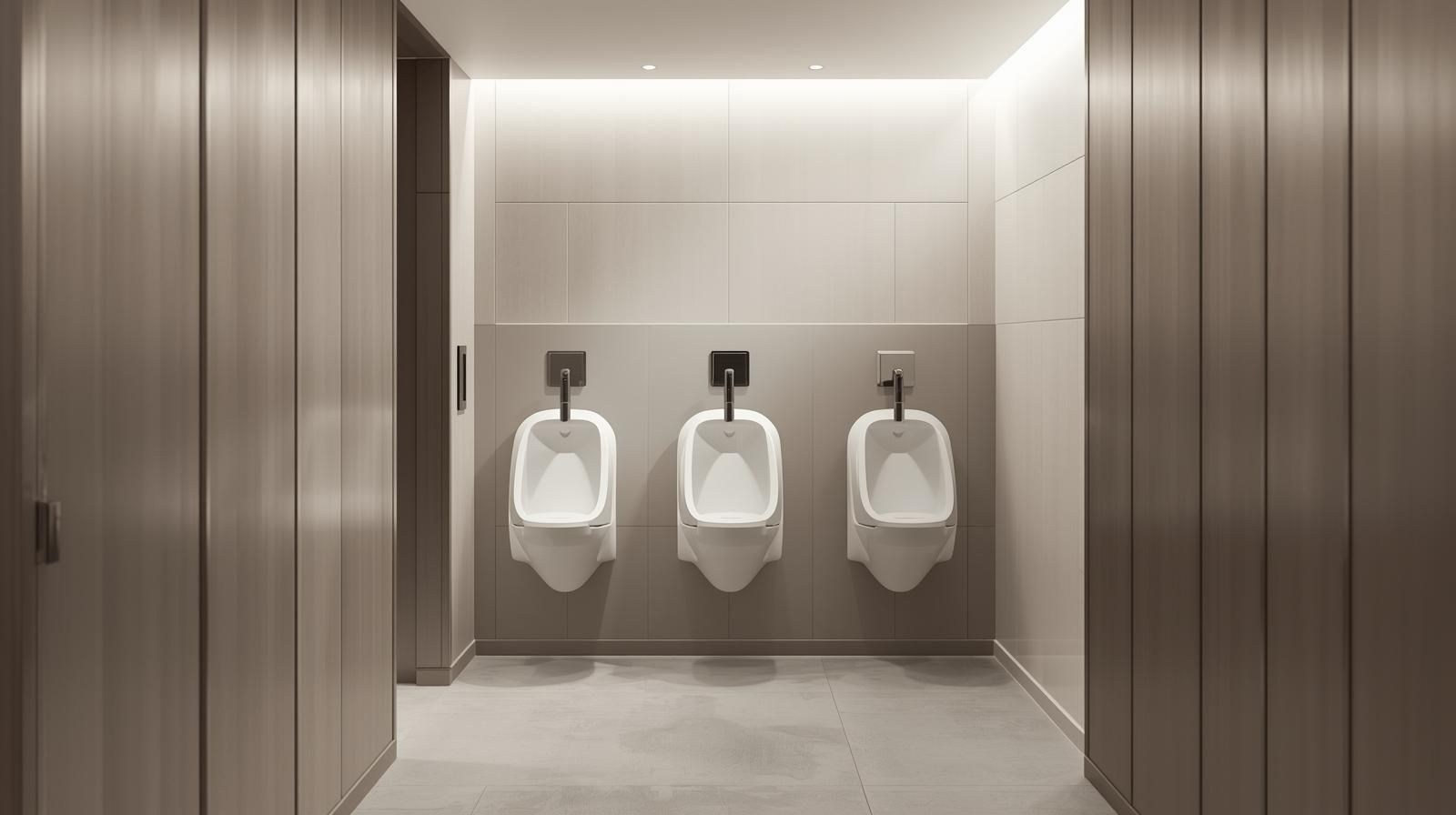
Corner urinals are designed to fit into underutilised corners, making them ideal for smaller layouts. While design options are limited, they are a clever way to maximise available space without compromising on function. These models are well-suited for compact cafés, small offices, and studio apartments.
Pros: Utilises awkward spaces, practical for tight layouts.
Cons: Limited design and style options.
Best for: Small cafés, compact offices, or studio apartments.
Related Post : Waterless Urinals: How They Work and Their Benefits
7. Female Urinals
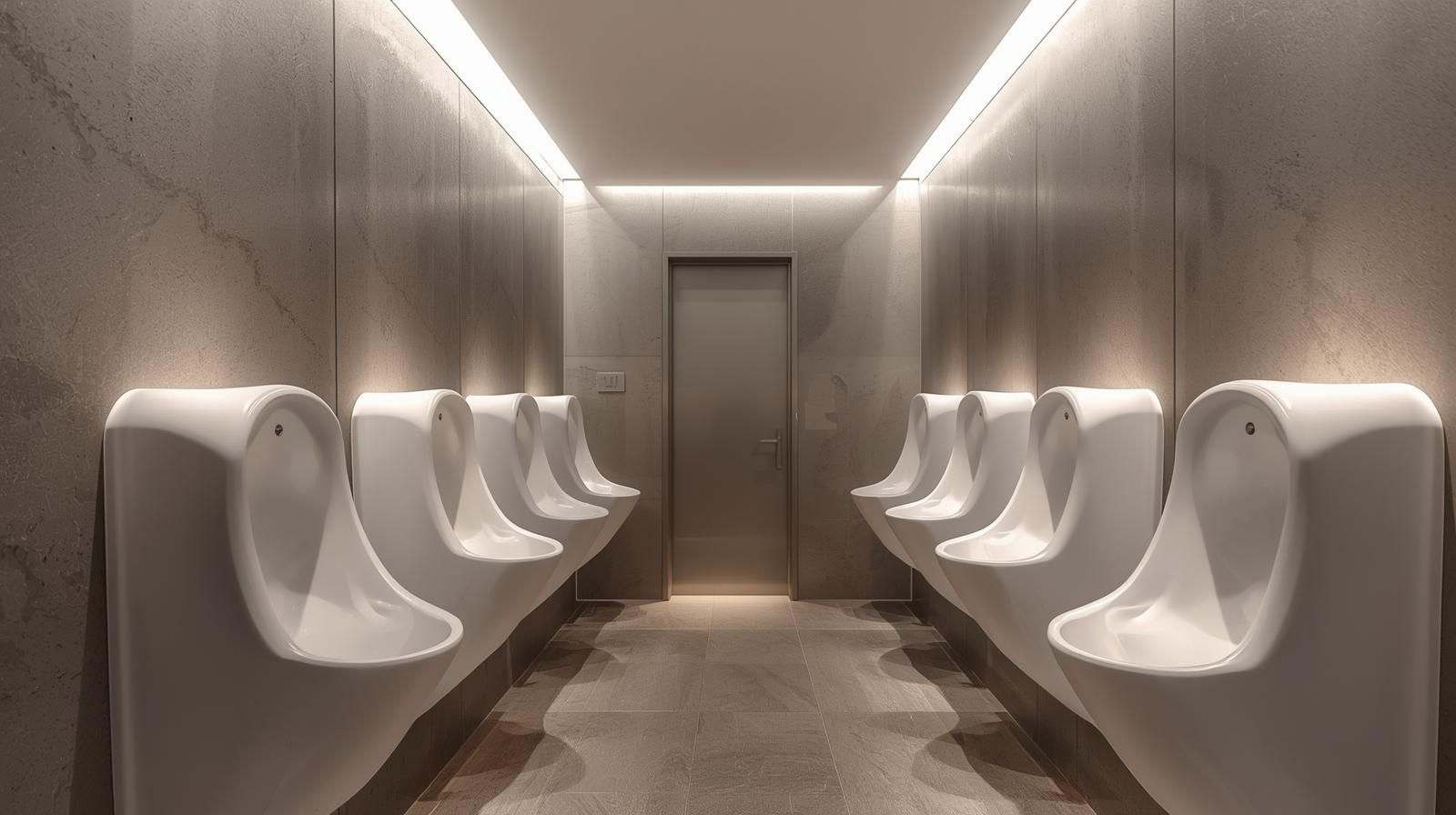
Female urinals are still in the early stages of adoption in India and are typically available only in pilot projects or modern facilities. Their purpose is to reduce waiting times and enhance hygiene in women’s restrooms. While availability is limited, they represent a step towards more inclusive washroom design.
Pros: Enhances convenience and hygiene, reduces queues.
Cons: Rarely available in India, limited adoption.
Best suited for: Modern public washrooms, event venues, and workplaces seeking to enhance restroom access for women.
Benefits of Installing Urinals in Residential and Commercial Spaces
Adding urinals and other bathware solutions offers several advantages:
- Hygiene: Urinals reduce splashing compared to traditional toilets, helping to maintain a cleaner restroom environment. Proper design and regular maintenance enhance this benefit.
- Water Efficiency: Urinals use significantly less water per flush than standard toilets. Waterless urinals eliminate flush water, providing the most significant water savings, while flushing urinals typically use less than 1 gallon per flush. Note that dual-flush technology is generally a feature of toilets, not urinals.
- Space-Saving: Urinals have a compact design that occupies less space than full-sized toilets, allowing better utilisation of restroom areas.
- Cost-Effectiveness: Urinals can lead to long-term savings by reducing water usage and lowering the need for cleaning and maintenance efforts. However, advanced models, such as sensor-operated and waterless urinals, may have higher upfront installation and maintenance costs.
How to Choose the Right Type of Urinal for Your Space?
Choosing the appropriate urinal depends on several factors:
- Space Availability: Compact spaces are best suited for corner urinals or small wall-mounted models that efficiently save floor area.
- Usage Frequency: Smaller urinals can suffice for residential use, while high-traffic commercial restrooms require larger, more durable models, such as floor-mounted or trough urinals.
- Budget: Standard ceramic urinals offer an economical option, whereas sensor-operated and waterless urinals incur higher initial costs but provide savings on water and maintenance over time.
- Maintenance: Consider the ease of cleaning and water consumption when selecting a urinal to ensure long-term hygiene and cost-effectiveness.
- Design: Match the urinal style with the restroom’s aesthetics, whether traditional or modern, to maintain harmonious decor.
Checklist before buying:
- Measure the available space.
- Decide who will use it (adults, children, or both).
- Choose the right material for durability.
- Factor in water-saving technology.
- Match the design with your tiles and overall layout.
Installation and Maintenance Tips For Urinals
Before finalizing the type of urinal for your project, consider these essential technical factors to ensure long-term performance:
- Rough-in Dimensions: Carefully measure the distance from the finished floor to the center of the drain. Standard installation heights typically range from 24 to 30 inches from the floor to the rim.
- Traffic Volume: For high-traffic zones, prioritize vitreous china materials for maximum durability and scratch resistance.
- Flushing Mechanism: Choose between manual valves, battery-operated sensors, or hardwired AC sensors based on your power availability.
- Regular Cleaning: Frequent sanitization prevents the buildup of bacteria. For sensor models, periodically check power connections to ensure uninterrupted operation.
Conclusion
Urinals today go beyond basic functionality, offering solutions that improve hygiene, save water, and optimise space across residential and commercial settings. From compact wall-mounted models to advanced sensor and waterless designs, each type serves a specific need depending on usage and layout.
For those seeking a balance of practicality and modern design, Simpolo Tiles & Bathware offers urinals that are durable, easy to maintain, and thoughtfully crafted to suit both high-traffic facilities and contemporary homes. Choosing the right type ensures your washroom remains efficient, hygienic, and visually refined for years to come.


